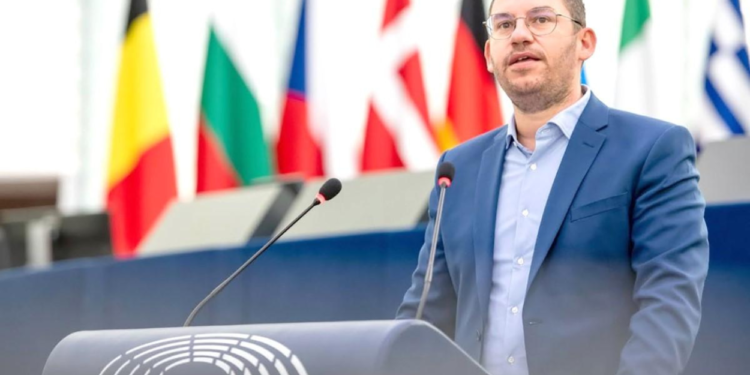Labour MEP Engerer criticizes EP President Metsola for excluding Maltese translation, citing Rule 158 and proposing funding for interpreters.
Labour MEP Cyrus Engerer has criticised the President of the European Parliament, Roberta Metsola over her disappointment in ensuring translation of Maltese addresses in the parliament during the next five years.
As he took to Facebook, Engerer demonstrated that during the present EP term, Maltese speeches were decoded during every meeting held by the institution. “Despite having a Maltese President of the European Parliament, unfortunately in a meeting chaired by the president herself, it was arranged that during the next term, Maltese will not be one of the languages interpreted in all other languages,” Engerer expressed.
The MEP commented that the reason that was given was a lack of Maltese people who could offer the interpretation service.
Rule 158 of Parliament’s Rules of Procedure ensures all Members of the European Parliament the right to express and use any official language of the European Union, including Maltese. This contains the requirement for EP documents to be prepared in the official languages and grants MEPs the freedom to address Parliament in their preferred official language, with interpretation delivered in the other official languages.
However, Rule 159 allows exceptions to Rule 158 when there is a deficiency of linguists proficient in a certain official language. Engerer remarked that the solution to this problem should be to fund Maltese workers while enabling youths to take up a career in interpretation.
Maltese is only one of two languages which will not be decoded in all meetings during the next EP term.
Moreover, a week ago Engerer gave a scathing accusation of “popular” governments who were ignoring their responsibilities to respect the rule of law in EU member states, as MEPs cautioned about democratic backsliding across many member states and slammed the Commission’s inactivity in safeguarding EU values.
Engerer encouraged MEPs to keep defending democracy, human rights and the rule of law because residents needed both national and European representatives to support those in power in check. “Especially when those in power think popularity absolves them of respecting the rule of law or protecting human rights,” Engerer expressed.
“In a democracy, popularity should never make anyone assume that they are above the law or that they could determine which rights citizens could enjoy.” Engerer was the sole Maltese MEP to communicate in plenary on the assessment of the European Commission’s 2023 Rule of Law report.
The text was embraced with 374 votes for, 113 against and 45 abstentions, following a discussion in plenary. Engerer expressed the European Commission’s evaluation of the rule of law in member states should be carried out by an autonomous panel and criticised it for its weaknesses in enforcing the conditionality mechanism with Hungary, dubbing it “shameful”.
He stated he was also dissatisfied that European Parliament president Roberta Metsola had failed to take the House’s message in its resolution on the rule of law in Greece, where an EPP-affiliated party governs.
“She pretends that there are no issues in this country where the government is accused of spying on journalists and politicians, where there is a systematic breach of the rule of law and where a journalist has also been assassinated, and until today there is total impunity.” Engerer finally called on residents and activists to continually engage in essential thinking and carry out their democratic revolutions.
The Parliament on its part brought note some definite positive developments, including the new Polish government’s actions to strengthen the rule of law and media autonomy, whilst highlighting ongoing threats to democracy, the rule of law, and fundamental freedoms as well as specific problems or happenings in several EU member states




